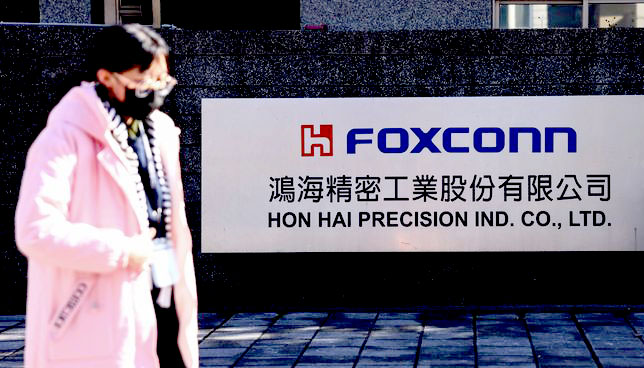Foxconn’s $19.5 billion chip plan with Vedanta takes a nosedive, dealing a blow to India

Foxconn, the Taiwanese electronics giant, has backed out of a $19.5 billion semiconductor joint venture with Vedanta, an Indian conglomerate known for its diverse interests in metals and oil. This development comes as a setback to Prime Minister Narendra Modi’s ambitious chipmaking plans for India.
Last year, Foxconn and Vedanta inked a pact to establish semiconductor and display production facilities in Gujarat, Modi’s home state. However, Foxconn made a concise statement that it would not proceed with the joint venture with Vedanta, without delving into the reasons behind their decision.
According to Foxconn, the company had collaborated with Vedanta for over a year, striving to transform a brilliant semiconductor concept into a reality. Nonetheless, both parties mutually agreed to terminate the joint venture, resulting in Foxconn’s withdrawal from an entity that now solely belongs to Vedanta.
Vedanta, on the other hand, expressed full commitment to its semiconductor project and claimed to have lined up alternative partners to establish India’s inaugural foundry. In a statement, Vedanta emphasized that it has redoubled its efforts to fulfill Modi’s vision.
A reliable source familiar with the matter revealed that concerns regarding delays in securing incentive approvals from the Indian government played a role in Foxconn’s decision to pull out of the venture. Additionally, the source disclosed that New Delhi had raised several queries regarding the cost estimates submitted to request incentives.
For Prime Minister Modi, who views chipmaking as a pivotal element of India’s economic strategy, this development deals a significant blow to his objective of attracting foreign investors to produce chips domestically for the first time. Neil Shah, Vice President of research at Counterpoint, remarked that the collapsed deal is undoubtedly a setback to the “Make in India” campaign and raises concerns and doubts for other companies as well as Vedanta’s reputation.
Responding to Foxconn’s decision, Deputy IT Minister Rajeev Chandrasekhar stated that it would have no impact on India’s plans. He emphasized that both Foxconn and Vedanta were esteemed investors in the country. Chandrasekhar also noted that it is not the government’s prerogative to delve into the private sector’s decisions on partnerships.
While Foxconn is renowned for its assembly of Apple products and other electronics, the company has been diversifying into chip manufacturing in recent years. The global chip output is predominantly concentrated in a handful of countries, with India entering the scene relatively late. The Vedanta-Foxconn partnership’s chipmaking plans in Gujarat were announced last September, with Modi hailing the project as a crucial stride in bolstering India’s chipmaking aspirations.
However, the execution of Modi’s plan encountered delays. Previously, Reuters reported that the Vedanta-Foxconn project faced challenges in securing European chipmaker STMicroelectronics as a technological partner. Although Vedanta-Foxconn managed to involve STMicro for technology licensing, the Indian government expressed a desire for the European company to have a more significant stake in the partnership, a proposition that STMicro was reluctant to embrace. Consequently, the talks remained deadlocked.
Despite this setback, the Indian government maintains confidence in attracting investors for chipmaking endeavors. Just last month, Micron announced its intention to invest up to $825 million in a chip testing and packaging unit in India, although not for manufacturing purposes. The total investment, with support from India’s federal government and the state of Gujarat, is estimated to reach $2.75 billion.
With India projecting its semiconductor market to be worth $63 billion by 2026, the country received three applications last year to establish chip fabrication plants under a $10 billion incentive scheme. These applications came from the Vedanta-Foxconn joint venture, Singapore-based IGSS Ventures, and global consortium ISMC, with Tower Semiconductor serving as a technology partner.
However, the progress of the $3 billion ISMC project has halted due to Intel’s acquisition of Tower Semiconductor, while the $3 billion plan by IGSS was temporarily suspended as the company sought to resubmit its application. Consequently, India has opened another round of applications for the incentive scheme, hoping to attract suitable candidates.





